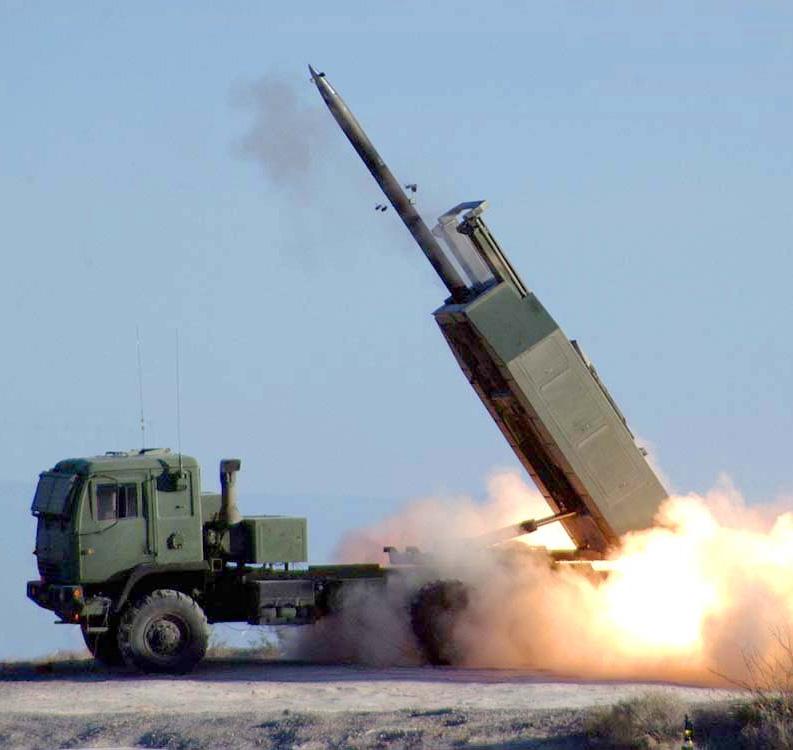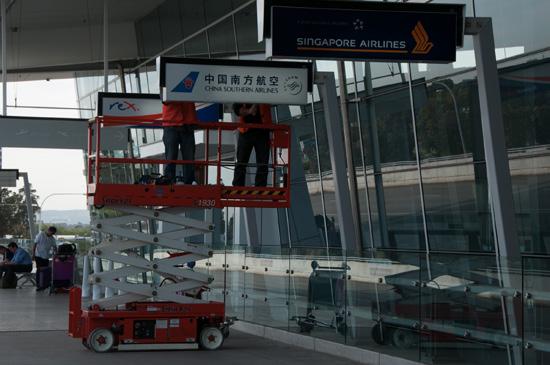
9 minute read
WORLD THIS WEEK
The return of Lula and China's relaxation of travel rules
China: Relaxation of international travel rules and opposition towards Chinese travellers
Advertisement
What happened?
On 26 December, China's National Health Commission announced that travellers arriving in China will no longer need to quarantine to enter the mainland.
On 4 January following this announcement, the European Union directed all travellers from China to undergo a Covid test before departure in response to rising virus levels. The European Commissioner for Health stressed on taking actions such as pre-departure inspections, increased monitoring of aircraft wastewater, and intensifying monitoring of Covid-19. The Commissioner’s spokesperson said: “These measures would need to be targeted at the most appropriate flights and airports and carried out in a coordinated way to ensure their effectiveness.” Not only has the EU taken steps against China, but countries worldwide are discussing restrictions or imposing them on travellers from China. Countries like the US, France, India, Japan, South Korea, Taiwan, Australia and others have imposed restrictions against Chinese travellers in last week.
On 4 January, South Korea’s Health and Welfare Minister said: “We must keep vigilant to prevent China’s spread of the coronavirus from affecting Korea.” The Moroccan Foreign Ministry said that anyone arriving from China regardless of nationality would be denied entry. In response to the restrictions from countries against China, China’s Foreign Ministry Spokesperson Mao Ning said: “We are firmly opposed to attempts to manipulate the Covid measures for political purposes and will take countermeasures based on the principle of reciprocity.”
On 4 January, WHO’s Emergency Director said: “There are certainly issues in terms of the criteria for recording and reporting deaths attributable to COVID-19. We believe that definition is too narrow, which requires respiratory failure in association with COVID-19 to be registered as COVID-related death.” China has recorded only 22 deaths from Covid since December 2022.
What does it mean?
First, the Lunar new year might create the peak in covid cases. The Guardian quoted tthe British health analytics company Airfinity, which predicts the infection is likely to hit rural areas when people travel to their homes. As the lunar new year approaches on 22 January and the international borders are opened. Chinese citizens who live outside of China will visit China after three years of lockdown and restrictions. Officials expect 2.1 billion passenger trips by road, rail, sea and air during the holidays within 40 days, double the 1.05 billion travelled during the same period last year with restriction. For the same reason, the local people will also celebrate the Lunar new year in larger gatherings. This will expose more people to the virus and might mark the highest Covid cases of the current wave.
Second, to boost business sentiment. China is experiencing an economic slowdown right now, which IMF head Kristalina Georgieva warned. Many businesses came out of China because of the zero Covid policy. Relaxing Covid restrictions was a step taken to boost businesses, service industries and tourists inside China, Hong Kong and Macau. Chinese experts have been talking with Pfizer Inc for one month to produce and distribute a domestic generic version antiviral drug Paxlovid. This reflects that China is willing to allow international vaccines to disperse the hesitation of investors on Covid variants and a transparent exit strategy from pandemic.
Also In News
Also In NewsAsia-Pacific: Increasing militarization

On 5 January, the Australian government decided to spend USD 684 million on buying HIMARs from US and Naval Strike Missiles (NSM) from Norway.
Australian Defense Minister Richard Marles stated, “the Naval Strike Missile and HIMARS launchers will give our Defense Force the ability to deter conflict and protect our interests.”

Australia has now become the fourth country in Asia-Pacific to increase its military spending for this year. On 23 December, the Japanese Cabinet decided upon increasing its defense budget by 26.3 per cent. Later on, 28 December, the South Korean government announced spending USD 261 billion over the next five years, resulting in an average annual growth of 6.8 per cent in its defense budget. Upon entering the new year, North Korean President Kim Jong Un too has announced “an exponential increase of the country’s nuclear arsenal.”
Indonesia: President passes emergency regulation on job creation law.
On 4 January, Joko Widodo signed an emergency regulation to replace the controversial job creation law which was ruled as flawed in 2021 by the constitutional court. The move was to ensure legal certainty and achieve the government's investment target amidst global
geopolitical tensions. It was flawed due to a lack of public consultations and ordered lawmakers to make a new law within two years. the law was seen as unconstitutional, otherwise. The government opted for emergency regulation as the routine procedure would make the process too long.
India: Strategic dialogue with France held
On 5 January, India and France held the 36th round of the Indo-French Strategic Dialogue. Indian National Security Advisor, Ajit Doval met with his French counterpart, Emmanuel Bonne. Both sides discussed working towards “strategic autonomy.” Indian Ministry of External Affairs said: “The two sides held discussions on a variety of issues, including the current global security situation in the context of the conflict in Ukraine, regional security in the context of Afghanistan, counter-terrorism, cyber security, defense cooperation in the Indo-Pacific, besides other issues of mutual concern.”
India: Jaishankar calls for dialogue to address the Ukraine war
On 02 January, India’s External Affairs Minister S Jaishankar reaffirmed India’s stance on the Ukraine conflict and called for a dialogue between Ukraine and Russia. Speaking at a press conference in Vienna, Jaishankar stressed that this era is not an era for war and added that all differences should be addressed through diplomacy and dialogue. He added that India along with the Global South is concerned regarding the availability of food, fertilizers and fuel which have been restricted due to the conflict.
Pakistan reassures China investors through CPEC, says the business ‘completely secure’
On 5 January, Prime Minister Shehbaz Sharif had a cordial exchange with his Chinese counterpart Li Keqiang. PM Shehbaz Sharif assured Li of creating a “completely secure and conducive business environment for Chinese investors” in Pakistan and the timely progress of CPEC and further expressed gratitude for helping the floodaffected Pakistanis. The two sides also discussed the upcoming International Conference on Climate Resilient also took place in this telephone exchange.
Pakistan: United States extends ‘support’ to Pakistan’s ‘right’ to guard itself against terrorism
On 3 January, US State Department Spokesperson Ned Price in a weekly press briefing said that Pakistan has “suffered tremendously” from the recent terror attacks in the country and that the country has the “right” to defend itself from terrorism.
Responding to Pakistan’s National Security Committee’s (NSC) claims that the country “might resort” to targeting the terrorist outfits across the border if Afghanistan “did not take the appropriate action,” Price said that the US would sustain its efforts to “call out the Taliban” to maintain its commitments to curb the spread of terrorism in the region. This comes after the NSC sent an “unequivocal” message to the Taliban and said that it disallowed Afghanistan “to provide sanctuaries and facilitate terrorists.”
Israel-Palestine: UNSC meeting over Al-Aqsa Mosque
On 6 January, the UN Security Council convened to discuss Israel’s Security Minister BenGvir’s visit to the Al-Aqsa Mosque in Jerusalem. UAE and China had called on the UNSC to meet publicly regarding the status and recent developments in the Mosque. The members voiced their concerns over the same and stressed the need to maintain the status quo. Riyad Mansour, Palestinian UN Envoy addressed the Council accusing Israel of “an unprecedented provocation”, and asked the members- “what red line does Israel need to cross for the Security Council to finally say, enough is enough?” Though the Council emphasized on the two-state solution, it fell short of taking action.

Russia: Putin's new year address reflects determination to strengthen
On 31 December, Russian President Vladimir Putin in his new year’s address to Russia called 2022. “A year of difficult, necessary decisions, the most important steps towards gaining the full sovereignty of Russia and the powerful consolidation of our society.” Putin said that the events of 2022 are milestones for a common Russian future and Russia’s total independence. He added that 2022 was filled with anxiety, unrest and experiences which brought great, key changes to Russia and the world. He criticized the West saying that while they lied about wanting peace all along, they had planned to use Ukraine to weaken Russia. On the sanction imposing on Russia, Putin said that despite the intention being to destruct "industry, finances, transport," did not materialize as the Russian society strengthened its economy to ensure sovereignty.
Ukraine War: US to arm Kiev with anti-aircraft Sea Sparrows
On 7 January, it was revealed that the US plans to deliver an unspecified number of RIM-7 Sea Sparrow short-range anti-aircraft missiles among the set of military technology that it has offered to Ukraine. This is in context of a massive new $3.75 billion military aid package for Ukraine announced by the US. Among the recent deliveries to Ukraine, one has seen the US-made shortrange NASAMS systems, German IRIS-T air defense systems offered. It is believed that at least one battery of the US Patriot system, which is seen as the backbone of NATO’s anti-aircraft defense, will be transferred to Kiev in the coming months.
About the Authors
Harini Madhusudan, Rashmi Ramesh, Akriti Sharma, and Ankit Singh are PhD scholars in the School of Conflict and Security Studies at the National Institute of Advanced Studies. Padmashree Anandhan, Anu Maria Joseph, Apoorva Sudhakar, and Joel Jacob are Research Associates at NIAS. Sethuraman Nadarajan, Bhoomika Sesharaj, Madhura Mahesh and Sayani Rana are Research Interns at NIAS.






